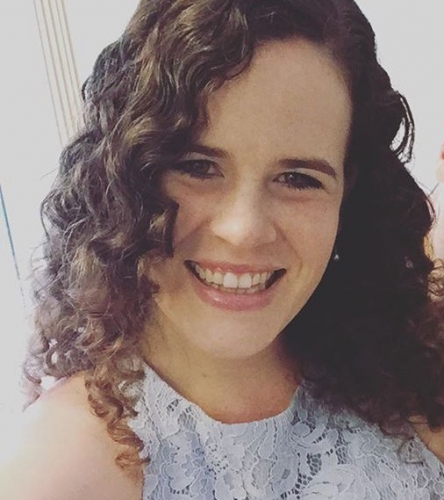There has been a growing trend towards holistic health focusing on treating the whole person and recognising the connection between physical, mental and spiritual wellbeing. While physiotherapy plays a vital role in diagnosing, managing and preventing a wide range of conditions, many patients these days are looking for a more integrated approach. We explore the merging of traditional physiotherapy practices with the age-old disciplines of yoga and pilates, taking a look at the impact these integrations have had on holistic healing.
Yoga has found its way into physiotherapy practices, serving as a complementary therapy to conventional treatment methods. Research by the
National Institute of Health highlighted the benefits of yoga in managing lower back pain, while yoga is also known to help with balance and proprioception in older adults. The integration of yoga principles and techniques into physiotherapy sessions offers several benefits:
-
Pain management: Yoga's gentle stretching and relaxation exercises can help alleviate pain.
-
Improved flexibility and range of motion: Yoga postures promote flexibility and enhance joint mobility, helping in rehabilitation after injuries or surgeries.
-
Enhanced mind-body connection: Yoga's focus on mindfulness and breath awareness builds a stronger connection between the mind and body.
-
Stress reduction: Yoga's relaxation techniques and meditation can reduce stress and anxiety.
Subscribe for FREE to the HealthTimes magazine
Pilates has also emerged as an effective rehabilitative tool, offering a range of benefits to patients recovering from injuries, surgeries or chronic conditions. Studies have explored the
effectiveness of pilates in enhancing postural stability, which is crucial for fall prevention. The integration of Pilates principles into physiotherapy sessions provides several advantages:
-
Core strength and stability: Pilates places a strong emphasis on strengthening the core muscles, which can prevent recurrent injuries.
-
Improved posture: Pilates exercises promote better posture by targeting the muscles responsible for supporting the spine.
-
Muscle balance: Pilates helps identify and correct muscle imbalances, which can contribute to musculoskeletal issues and pain.
-
Low-impact rehabilitation: Pilates exercises are gentle on the joints, making them perfect for patients of all ages.
Yoga and pilates share foundational principles that align seamlessly with the goals of physiotherapy. Both emphasise the importance of mind-body connection, breath awareness and controlled movement, making them natural partners in the healing process. Techniques such as gentle stretching, relaxation and breathwork help alleviate pain associated with musculoskeletal conditions and injuries.
For physiotherapists looking to integrate yoga and pilates into their practice, here are some tips to help:
-
Conduct a thorough assessment of each patient's condition, limitations and goals to tailor yoga and pilates exercises accordingly.
-
Collaborate with certified yoga and pilates instructors who have experience working with individuals with medical conditions.
-
Start with gentle exercises and gradually progress as the patient's condition improves.
-
Educate patients about the benefits of yoga and pilates and the importance of regular practice for long-term well-being.
-
Continuously monitor the patient's progress and adjust the rehabilitation plan as needed based on their feedback and outcomes.
Holistic healing, with its emphasis on treating the whole person, recognises that an individual's physical health is linked to their mental and emotional wellbeing. Incorporating holistic principles into physiotherapy practice offers several significant benefits:
1. Comprehensive Patient Care
FEATURED JOBS
Programmed Health Professionals
Programmed Health Professionals
Programmed Health Professionals
Holistic healing allows physiotherapists to address the physical symptoms of a patient's condition along with their emotional and psychological needs. This comprehensive approach ensures that patients receive well-rounded care that considers their overall wellbeing.
2. Improved Patient Satisfaction
Patients who experience holistic healing in physiotherapy often report higher levels of satisfaction and are more likely to stick to their treatment plans.
3. Enhanced Pain Management
Holistic techniques, such as mindfulness, relaxation exercises, and stress reduction strategies, can contribute to pain management.
4. Improved Quality of Life for Older Adults
As Australia's population ages, the holistic approach in physiotherapy becomes particularly valuable for older adults. It promotes mobility, independence, and a higher quality of life among seniors.
While the integration of holistic healing practices like yoga and pilates into physiotherapy offers numerous benefits, it also presents certain challenges and considerations that must be addressed. Physiotherapists should commit to ongoing education and training in yoga and pilates to stay up-to-date with best practices and safety guidelines. Physiotherapists must obtain informed consent from patients before integrating these practices into their treatment plans, ensuring that patients are aware of the potential benefits and risks. It helps to thoroughly document the incorporation of yoga and pilates into patient care, including the exercises performed, any modifications, patient responses, and progress over time.
The integration of yoga and pilates into physiotherapy practice represents a holistic approach to patient care. It unlocks a world of benefits that extend beyond physical rehabilitation, addressing the mental and emotional wellbeing of their patients. This approach not only enhances pain management, flexibility, and mobility but also fosters a deeper connection between the mind and body. Through ongoing education and patient-centred care, physiotherapists can offer a comprehensive approach that addresses the connection between the body, mind and spirit.













